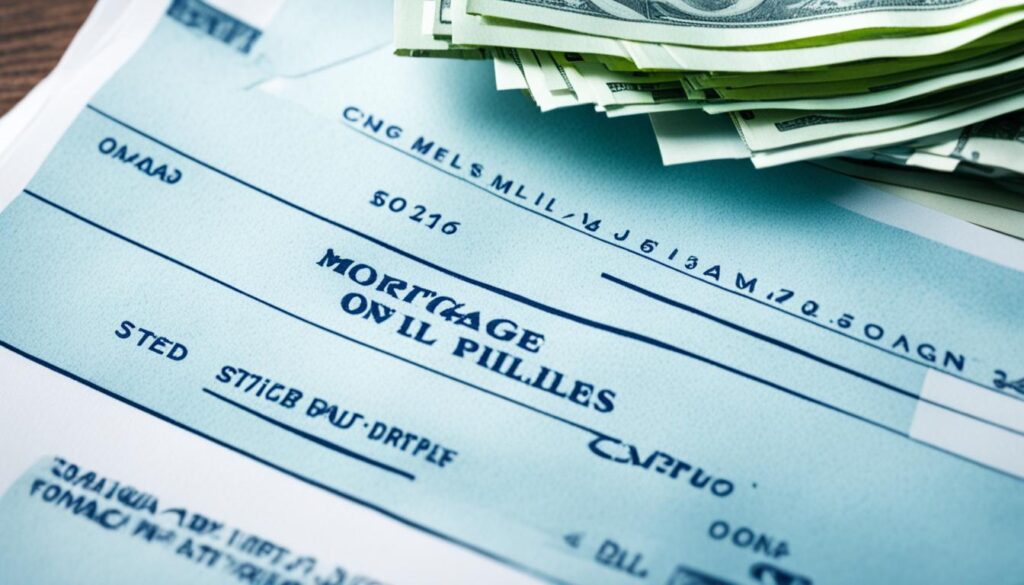Did you know that making an extra payment of just $200 per month on a 30-year fixed mortgage can save you over $50,000 in interest costs? This surprising statistic highlights the significant impact of mortgage payoff strategies that homeowners often overlook1. When faced with the critical financial planning decisions regarding whether to prioritize mortgage payoff vs stock market investment, understanding your unique financial situation becomes paramount. The choices you make now could shape your wealth-building strategies for years to come. This article aims to help you navigate the complexities of choosing between paying down your mortgage or investing in the stock market by weighing the benefits and potential drawbacks of each option.
Key Takeaways
- Making additional payments on your mortgage can lead to substantial interest savings.
- Understanding income stability is essential for making informed financial planning decisions.
- Balancing mortgage payoff with potential market returns can optimize your financial portfolio.
- Paying off a mortgage early can provide psychological and financial security.
- Investing in the stock market offers opportunities for compound interest growth.
Understanding Your Financial Situation
Assessing personal financial health is critical when deciding between mortgage payoff and stock market investment. One of the first steps is evaluating current debt levels, which allows for better cash flow management and helps in identifying low-interest debts, like mortgages, that may be preferable to pay off later. Mortgage rates averaged 4.5% for a 30-year mortgage of $200,000, with total interest over the life of the loan amounting to $164,8132. Allocating an additional $300 per month toward the mortgage could result in saving $67,816 in interest while shortening the repayment period by over 11 years2.
Evaluating Current Debt Levels
A comprehensive examination of your debts enables effective prioritization. It is wise to recognize the potential interest savings when opting to pay off a mortgage early, particularly under low interest rates. Historical returns on the S&P 500 Index have averaged between 10% to 11% annually since 1926, with a conservative estimate of 8% for future investments2. In comparison, investing that extra $300 monthly into an index fund could yield approximately $160,780 after 19 years, surpassing the interest savings you would have realized from early mortgage payment2.
Income Stability and Future Earnings Potential
Income stability for financial planning plays a vital role in the decision-making process. A stable income enhances confidence in investing for the future as job security and potential salary increases can significantly influence financial options. Investing in liquid assets like stocks offers easier access to funds compared to locked home equity, while refinancing opportunities can reduce mortgage interest rates, opening avenues for investment in higher-yielding assets2. Maintaining a focus on both saving and investing can position you better for long-term financial health and allow for strategic allocation of funds.

Pros and Cons of Mortgage Payoff
Deciding to pay off your mortgage early can lead to significant financial benefits and drawbacks. Understanding these factors is crucial in making informed financial decisions on mortgage payout. The choice involves evaluating the emotional aspects alongside potential monetary gains and losses.
Benefits of Paying Off Your Mortgage Early
One of the primary mortgage payoff benefits is the substantial interest savings that homeowners can achieve. By eliminating their mortgage early, individuals might save thousands of dollars, particularly in the initial years when interest payments dominate the financial landscape of the loan3. Paying off a mortgage can foster a sense of peace and emotional stability, freeing up cash flow for savings and other critical financial needs3.
Additionally, homeowners who accelerate their mortgage payments may find themselves in a better financial position later in life, especially heading into retirement. A paid-off home can significantly reduce monthly expenses, allowing individuals to allocate resources toward retirement savings or healthcare3. Paying down a mortgage improves credit scores and increases home equity, enabling future investments while relying less on high-interest debts4.
Potential Drawbacks of Eliminating Mortgage Debt
Despite the advantages, there are notable potential drawbacks of mortgage elimination. For some, prepayment penalties may apply, reducing any financial benefits derived from paying off the mortgage early5. Furthermore, prioritizing mortgage payoff can deplete cash reserves needed for emergencies, which experts recommend to be three to six months’ worth of living expenses4.
Moreover, focusing exclusively on eliminating mortgage debt can lead to missed investment opportunities. Historically, investing in the stock market has yielded an average annual return of around 10%, which may surpass the savings from mortgage interest4. As such, homeowners must weigh the emotional satisfaction of becoming debt-free against potential financial gains from smarter investments, ensuring a balanced approach to their fiscal health5.

Investment Strategy: Should You Invest in the Stock Market?
When considering financial strategies, evaluating the merits of the stock market compared to mortgage payoff is crucial. Each option presents unique benefits and challenges, particularly relating to stock market investment advantages and the risks involved with investing. Understanding these aspects is vital for making informed decisions.
Stock Market Investment Advantages
Investing in the stock market can yield substantial benefits over time, particularly in a low mortgage rate environment. Historically, the average return of the S&P 500 has surpassed the rates typically associated with mortgages, suggesting that investing can provide greater financial gains than merely paying off a mortgage early6. Furthermore, many individuals can take advantage of employer-matching contributions to retirement accounts, further enhancing potential investment returns6. Keeping funds in the stock market rather than focusing solely on mortgage payoff can increase future wealth significantly.
Risks Involved with Investing
While the prospect of stock market investment advantages is enticing, one must remain aware of the risks involved with investing. Inherent market volatility can lead to fluctuations in investment values, including the possibility of losing principal amounts7. Investing requires a risk tolerance assessment, and individuals should consider their timelines for investment against their financial situations. Additionally, many homeowners enjoy lower mortgage rates, with a large percentage of mortgages under 5%, further complicating the decision between paying off debt or investing7.
| Investment Option | Potential Returns | Risks Involved | Liquidity |
|---|---|---|---|
| Stock Market | Historically higher than mortgage rates | Market volatility; risk of loss | High |
| Paying Off Mortgage | Savings on interest payments | Opportunity cost of investable assets | Low |
Mortgage Payoff vs. Stock Market Investment: Weighing Your Options
When deciding between paying off a mortgage or investing in the stock market, it’s crucial to analyze long-term returns. The potential benefits of investing often outclass those of early mortgage payoff, especially in favorable interest rate environments. By comparing mortgage payoff to stock market returns, individuals can identify which route best aligns with their financial goals.
Comparing Long-Term Returns
The historical performance of the S&P 500 reveals an average return of around 10% annually since 1926. In contrast, individuals who pay off their mortgages might save on interest, but these savings can be less than what a properly managed investment portfolio might yield. If a mortgage interest rate falls in the range of 4-5%, the opportunity to invest rather than prioritize mortgage payments becomes more viable, as noted in various financial studies8. Conversely, for those with higher rates, the motivation to pay down the mortgage could be stronger, particularly if financial stress is a concern9.
The Impact of Interest Rates on Mortgage Payments
Interest rates play a significant role in determining the viability of mortgage payoff versus investing. With low mortgage rates below 4%, investing in the stock market may offer higher returns, making it advantageous for financial growth8. On the other hand, escalating mortgage payments can shorten the loan duration, leading to substantial savings on interest paid over time10. Additionally, those unsure about the market’s volatility might consider how their risk tolerance aligns with either approach for maximizing financial growth strategies9.
| Investment Option | Potential Return | Considerations |
|---|---|---|
| Stock Market | ~10% average annual return | Risk of market volatility; potential for higher long-term returns |
| Mortgage Payoff | Interest savings (varies based on rate) | Financial stress mitigation; less liquidity compared to investments |
Alternative Strategies for Financial Growth
When considering financial growth, various alternative strategies can complement the choices between mortgage payoff and stock market investing. One essential aspect involves building an emergency fund. This fund serves as a financial cushion that protects against unexpected expenses. Financial planners suggest that a robust emergency fund can safeguard against sudden financial crises, forming a core element in financial stability11.
Building an Emergency Fund
Establishing an emergency fund is crucial for mitigating risks that could derail other financial plans. Experts recommend saving enough to cover three to six months’ worth of expenses, which can alleviate pressure from navigating fluctuating markets or unforeseen repairs. This proactive approach ultimately aligns with primary goals in alternative strategies for financial growth.
Reducing Other High-Interest Debts
Prioritizing the reduction of high-interest debts is vital. Paying off these debts frees up cash flow for investing or saving towards important goals. Approximately 58% of individuals report feeling a stronger sense of financial freedom once high-interest debts are eliminated12. Consequently, it is wise to direct efforts towards lowering these debts to establish a more stable financial footing.
Combining Both Strategies: Invest While Paying Off Mortgage
Implementing combinatory approaches to investments and mortgage payoff can work effectively for many homeowners. This strategy allows individuals to invest a portion of their income while making progress on their mortgage payments. By adopting this dual-method approach, investors can capitalize on potential returns from their investment accounts, while simultaneously enjoying the benefits of reducing their mortgage balance. Investments like dividend-paying stocks or rental properties offer opportunities for passive income, strengthening overall financial health13.
Conclusion
When deciding between mortgage payoff vs stock market investment, it’s crucial to understand your financial landscape and personal goals. Individuals should carefully weigh the implications of both options, recognizing that there are significant benefits and potential drawbacks involved with each approach. An imperative factor is the current mortgage interest rates; those with low rates, such as below 4%, might find it advantageous to leverage that debt to invest in the stock market, while those facing higher rates may lean towards prioritizing mortgage elimination1415.
A solid wealth-building plan often includes diverse elements tailored to unique financial situations. The general advice is to build an emergency fund covering three to six months of living expenses before directing excess funds toward debt repayment or investing1615. Making informed financial decisions ultimately involves a deep understanding of market dynamics, potential investment returns ranging from 5% to 10%, and the risks inherent in both pathways1415.
Consulting with a financial advisor can significantly aid in the decision-making process, helping individuals navigate the complexities of mortgage payoff vs stock market investment effectively. Such professional guidance ensures that every opportunity for financial growth and every possible burden are thoroughly examined, allowing for a strategic approach tailored to individual circumstances1615.
FAQ
What should I prioritize: mortgage payoff or stock market investment?
What are the benefits of paying off my mortgage early?
Are there any drawbacks to eliminating my mortgage debt?
What are the advantages of investing in the stock market?
What risks are associated with investing in the stock market?
How can I compare long-term returns from investing versus mortgage payoff?
What alternative strategies should I consider for financial growth?
Should I consult a financial advisor when making these decisions?
Source Links
- https://www.investopedia.com/mortgage-or-retirement-4770977
- https://www.forbes.com/advisor/mortgages/pay-off-mortgage-early-vs-investing/
- https://www.ameriprise.com/financial-goals-priorities/personal-finance/should-you-pay-off-your-mortgage
- https://www.bankrate.com/mortgages/pay-off-mortgage-or-invest/
- https://www.moneygeek.com/mortgage/pay-off-your-mortgage-or-invest/
- https://www.rocketmortgage.com/learn/pay-off-mortgage-or-invest
- https://www.morningstar.com/personal-finance/pay-down-mortgage-or-invest-2024-edition
- https://chicagopartnersllc.com/your-resources/wealth-blog/paying-off-your-mortgage-vs-investing/
- https://barbarafriedbergpersonalfinance.com/pay-off-mortgage-or-invest-market/
- https://www.ramseysolutions.com/retirement/retirement-college-mortgage
- https://canguard.ca/maximizing-wealth-mortgage-pay-off-vs-investment-dilemma/
- https://www.morningstar.com.au/insights/personal-finance/237612/paying-off-your-mortgage-vs-investing
- https://www.investorschronicle.co.uk/content/a23daa45-1538-511f-81af-19e0bb813be2
- https://www.physiciansidegigs.com/pay-off-mortgage-or-invest
- https://www.usatoday.com/money/blueprint/mortgages/should-you-pay-off-mortgage-or-invest/
- https://www.britannica.com/money/pay-off-mortgage-or-invest

